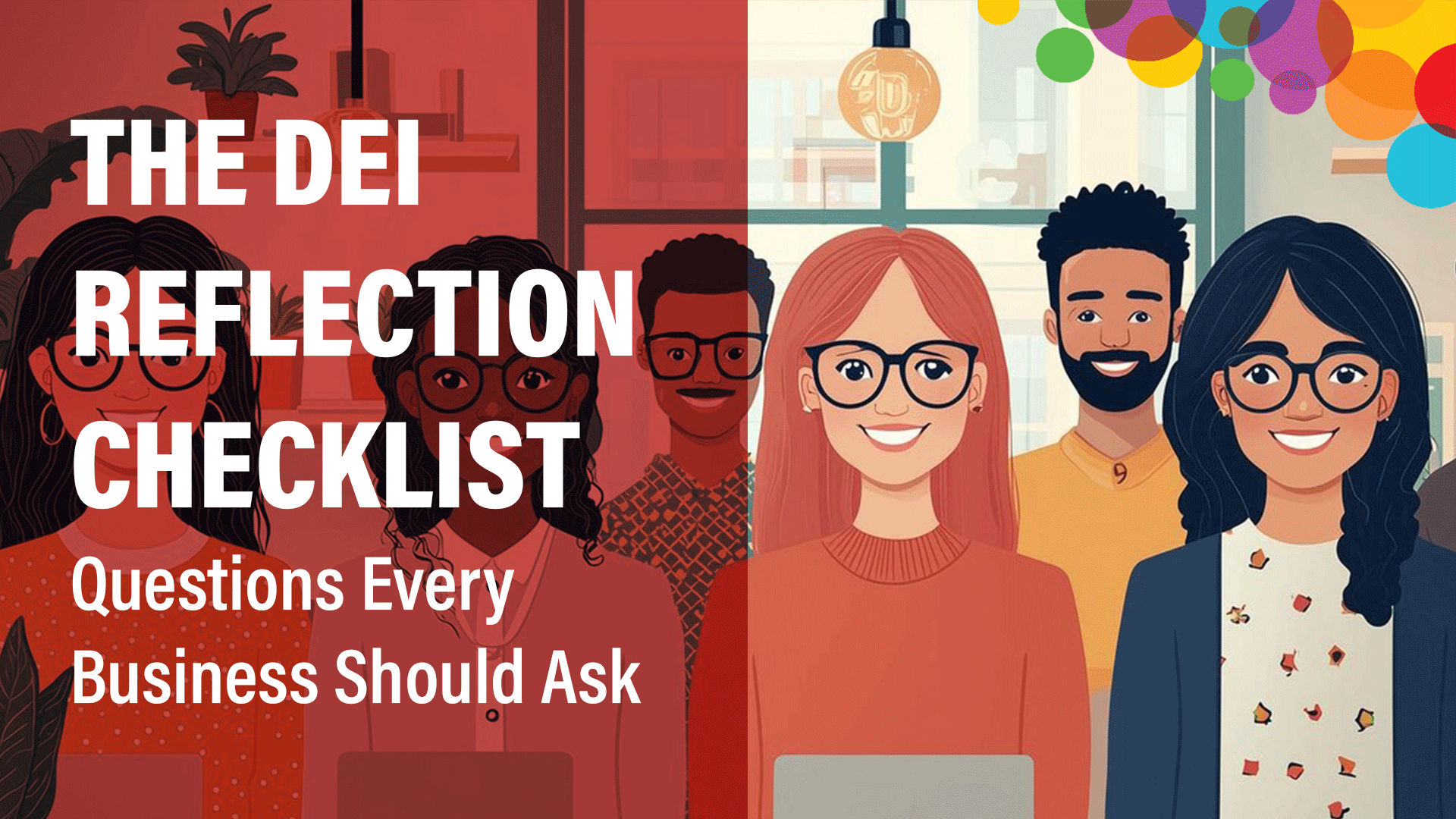In the rush to implement diversity, equity, and inclusion (DEI) programs, businesses often dive straight into external initiatives—hiring quotas, diversity workshops, and employee resource groups. While these are all critical pieces of the DEI puzzle, the first, often-overlooked step is looking inward. A DEI checklist isn’t just about hitting external goals; it’s about making sure your internal practices reflect the values you’re preaching. In short, true DEI starts with self-reflection.
Why Every Business Needs a DEI Reflection Checklist
Before businesses can lead with DEI, they need to understand where they stand. A reflection checklist helps leadership and teams assess current practices, confront uncomfortable truths, and identify blind spots. Self-reflection ensures that DEI initiatives aren’t just surface-level band-aids but are rooted in genuine, systemic change. Plus, let’s face it—without self-awareness, any DEI initiative risks coming across as performative, which is the last thing anyone wants.
So, where do you begin? Right here, with these questions.
The Questions That Matter
Below is a set of key questions that every business should ask when evaluating their DEI practices:
- Who’s in the Room?
- Are decisions being made by a diverse group of voices? Or are we unintentionally perpetuating the same perspectives over and over?
- Whose Voices Are Amplified?
- Beyond just who’s in the room—whose ideas are we championing? Are we ensuring that every voice, regardless of background, is heard and valued?
- What Do Our Numbers Say?
- Have we taken a hard look at our hiring and retention data? Are certain groups underrepresented in leadership, or are we seeing a pattern of turnover with particular demographics?
- Are We Educating or Checking Boxes?
- Are our DEI efforts focused on real, actionable education, or are they just there to meet compliance standards? Is our team truly engaged with learning or just clocking hours in diversity training?
- Do We Walk the Talk?
- Does our external messaging align with what’s happening internally? Can we say, with confidence, that our culture is one where all employees feel included and valued?
- How Do We React to Mistakes?
- When issues of bias or exclusion arise, how do we handle them? Is there a blame game, or do we take them as learning moments for growth?
Turning Answers into Action
So, you’ve answered the questions—now what? This is where self-reflection turns into actionable change. Responses to these questions can point out the gaps in your current DEI efforts and serve as a guide for future strategy. For example:
- Lack of diverse leadership? Start by creating mentorship and sponsorship programs for underrepresented groups.
- Voices being drowned out? Ensure that meetings and brainstorming sessions have structures that prevent dominant voices from overshadowing others.
- Discrepancies in hiring and retention? Reevaluate your hiring pipeline and consider where biases may be creeping in—from job descriptions to the interview process.
- Performative DEI programs? Invest in ongoing education and meaningful dialogue, not just one-off training sessions.
The key is to ensure that your DEI checklist isn’t a one-time exercise but an ongoing, evolving process that grows with your business.
Clovity’s Checklist: What We Ask Ourselves
At Clovity, as a minority-owned business, we know that walking the DEI walk requires constant self-assessment. Here are some of the questions we ask ourselves:
- Are we fostering an environment where every employee, from entry-level to leadership, feels a sense of belonging?
- Are we holding ourselves accountable, both in terms of internal culture and external partnerships?
- How are we partnering with other minority-owned businesses to drive mutual success in an inclusive and equitable way?
We take these questions seriously and use them to steer our efforts. From conducting regular internal surveys to ensuring that our leadership reflects the diversity of our workforce, we’re committed to making DEI a cornerstone of Clovity’s business strategy. We also partner with organizations that share our values, working to create broader opportunities for underrepresented communities.
Continuous Self-Assessment for True DEI
DEI is not a ‘set it and forget it’ initiative. It requires ongoing reflection, adjustment, and a willingness to confront difficult truths. By regularly using a DEI reflection checklist, businesses can ensure that their efforts are both authentic and effective. At Clovity, we know that the journey to true inclusion starts with ourselves—and we’re committed to walking that path, alongside our partners, every day.Â
For more info, contact Bhawna Vats, Sr. Director – DEI Partnerships and Engagement


